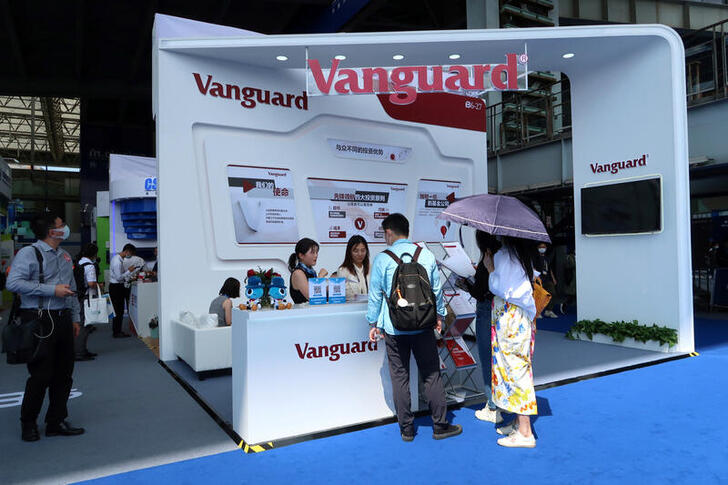Vanguard is giving up on China too early. The low-cost fund specialist said on Tuesday that it’s no longer pursuing an independent license from Beijing. Instead it will cut headcount and focus on a joint venture with Ant Group. China’s $3 trillion industry is competitive, and passive funds aren’t easy to sell in China. Even so, now is the time to try harder.
China’s mutual fund industry is barely 20 years old, and acts like it, charging relatively high fees and exhibiting high churn rates. Funds must dabble in volatile instruments that have not, historically, rewarded long-term passive investors of the sort that helped make Vanguard the world’s second-largest asset manager. The winners have been hyperactive traders skilled at playing warped markets.
None of that plays to Vanguard’s strengths; thus, perhaps, the decision to partner with Ant in 2019. Jack Ma’s fintech champion controls the country’s most popular electronic payments app and runs Yu’e Bao, one of China’s largest money market funds. It is also in very hot water with Beijing.
In August, Vanguard exited Hong Kong and Japan and moved its Asia headquarters to Shanghai, suggesting an increased focus on the mainland. But in October it abandoned its Chinese institutional business and returned $21 billion to state investors. Now it is backing further away from a market that is, for all its eccentricities, starting to mature. Chinese retail investors who preferred to day-trade on their own accounts have started moving into professionally managed funds; those who once parked all their savings in cash and houses are warming to bonds and equities as markets are reformed.
Mutual fund assets grew 70% in the three years to the end of March 2020, per ICI Global Data, nearly six times faster than the global average. Thomas Gatley of Gavekal Dragonomics estimated that roughly 2.5 trillion yuan ($380 billion) of new money may have flowed into equity and hybrid mutual funds in 2020. The size of Chinese exchange-traded funds has quadrupled since 2017, now worth more than 1 trillion yuan. There’s plenty of competition from local rivals and foreign brands like Blackrock and Invesco, but past performance is not indicative of future results.

